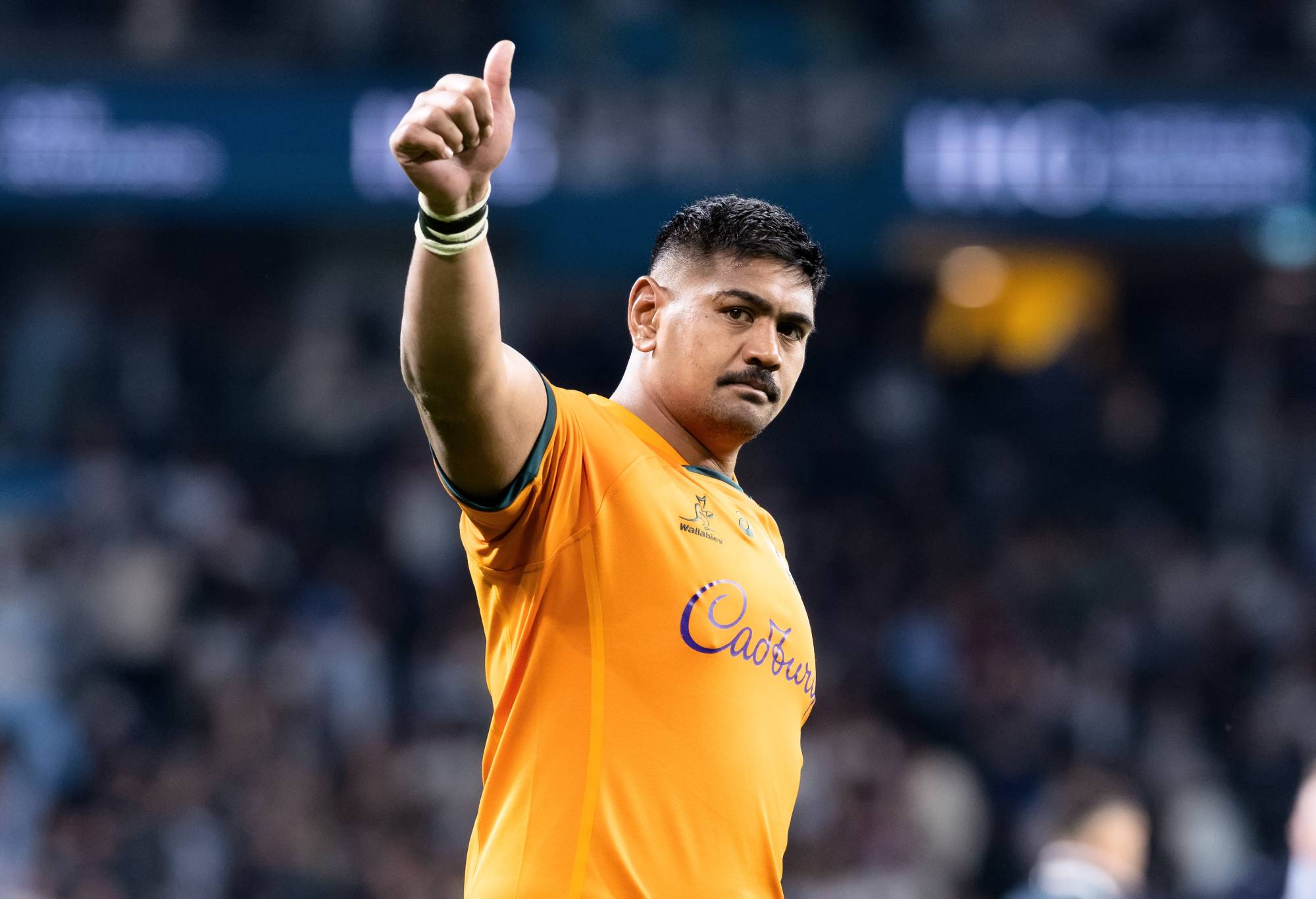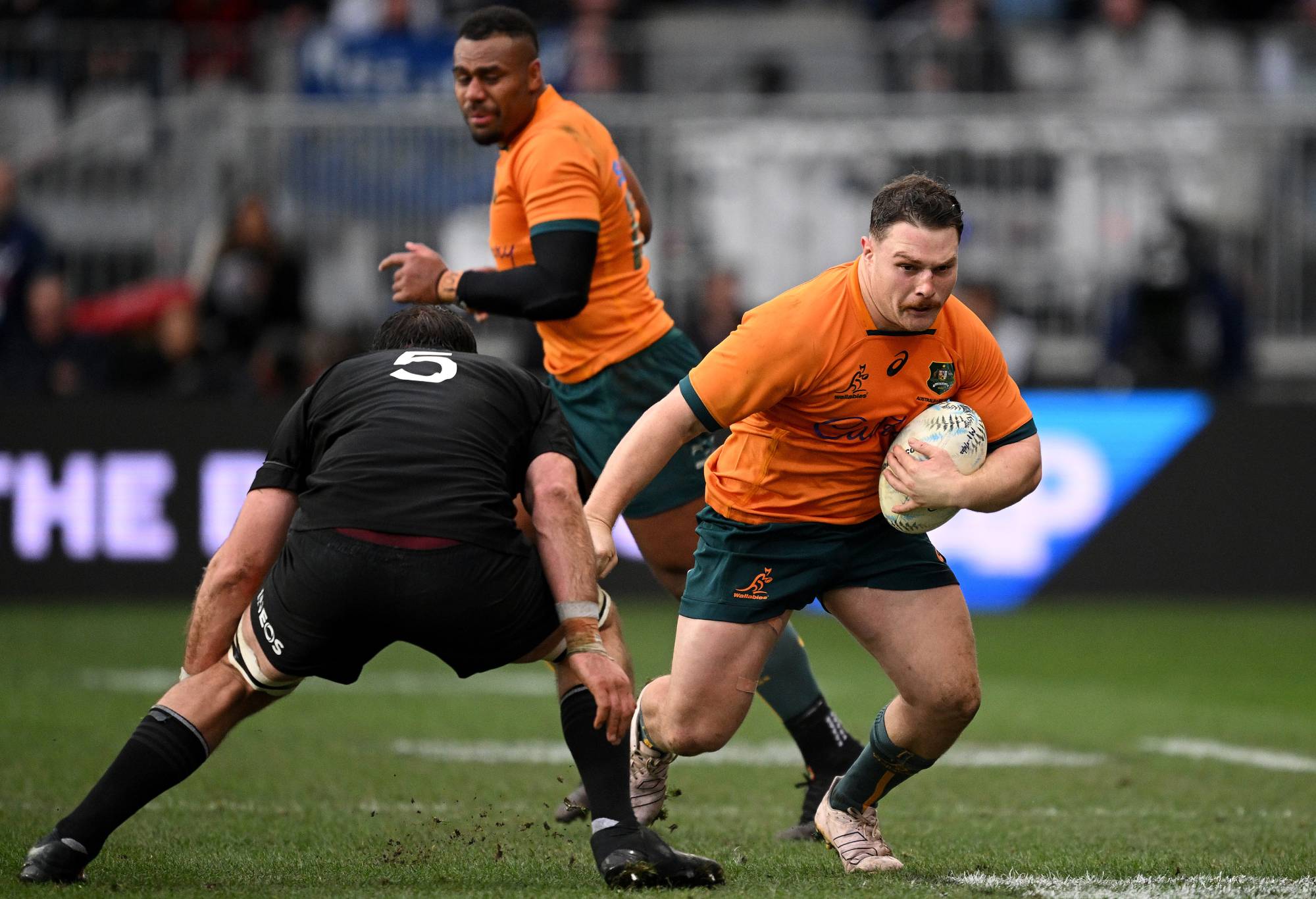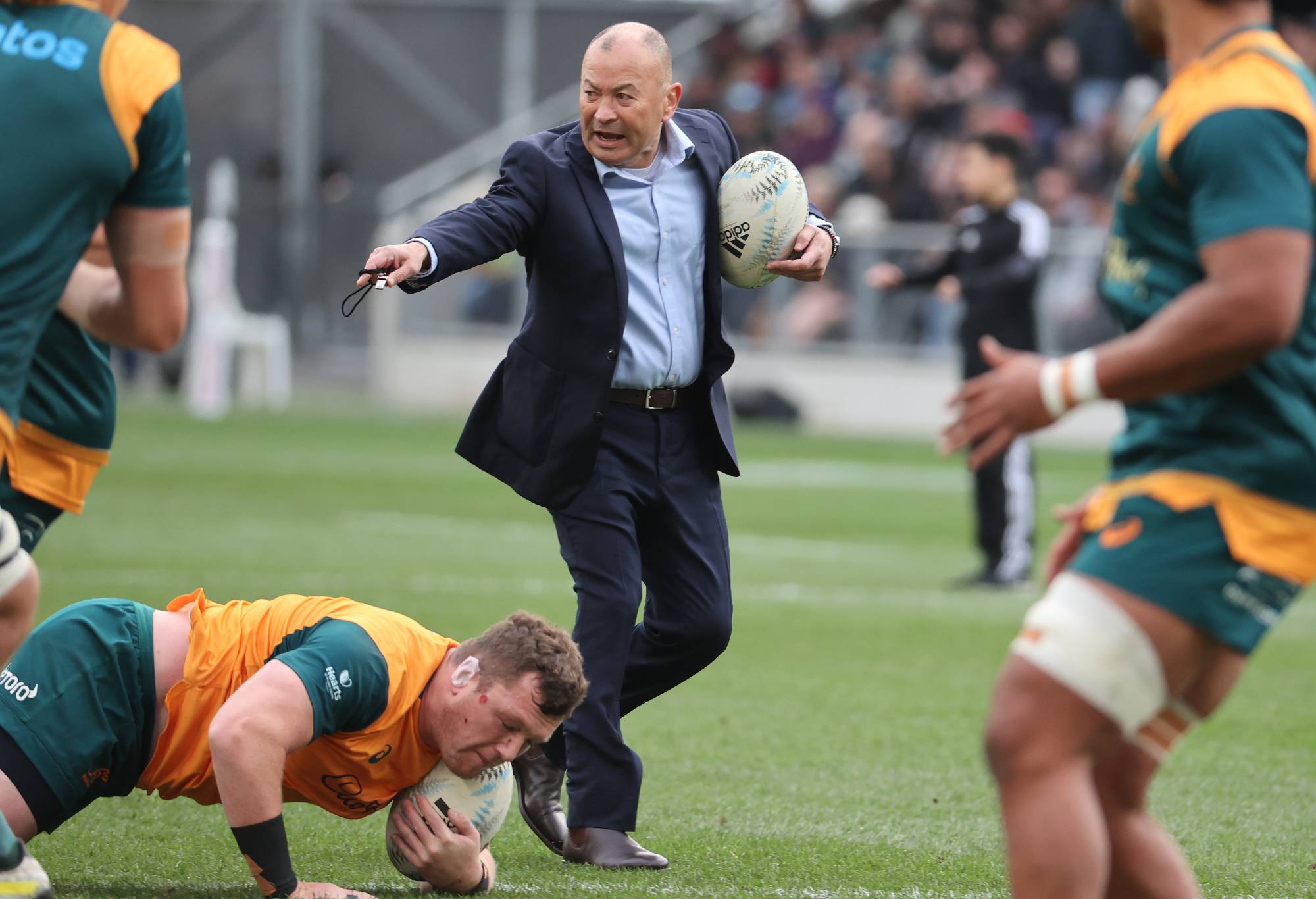First, a burning question. Has Eddie Jones transformed his whole selection strategy based on these golden generation articles?
OK that’s pretty far-fetched, but equally it’s pretty clear that his World Cup squad selection has risked everything in applying their central principle.
Here’s the theory. Jones knows that whatever he did, Australia was very unlikely to do well in France. Dave Rennie’s 38% win rate and the performance of his Wallabies in these last four defeats has made that patently obvious. Years of failure in the Australian rugby system has meant the veteran and prime years players at his disposal simply aren’t good enough.
However, perhaps Eddie can help the new, arguably superior, rising generation to fulfil their potential. If so they are more likely than their elders to enjoy the sort of success that will give rugby fans hope and arouse a wider interest in the sport.
Selecting a World Cup squad full of these youngsters could help him achieve that. They will get invaluable World Cup experience at an early age and if the team stays together, they will build up a cohesion advantage from playing together for a long time. This could help them triumph in the more winnable and important battles ahead.

Will Skelton. (Photo by Pete Dovgan/Speed Media/Icon Sportswire via Getty Images)
Let’s look at how likely this approach is to succeed and why these future battles are more winnable and important.
This approach has worked before
As we’ve seen in this series, it’s a strategy that’s proved successful in the past. For example:
- John Mitchell’s young 2003 World Cup squad might have been embarrassed by Stirling Mortlock’s rampaging runaway try and George Gregan’s “Four more years” sledge, but it went on to form the backbone of perhaps the greatest rugby team of all time. A team that dominated the world game for twelve years, winning back-to-back World Cups.
- Heyneke Meyer’s inexperienced 2015 team suffered the most embarrassing defeat in the Springboks’ history, but four years later that generation took home the chocolates and still dominate the widely feared South Africa squad.
- Stuart Lancaster’s youthful lineup couldn’t get out of their group in their own 2015 World Cup but the following year they won England’s only Six Nations Grand Slam since 2003. Only the similarly advantaged South Africa was able to stop Eddie Jones from fulfilling his greatest ambition next time up in 2019.
- In 2019 France fielded a 7, 8, 9 and 10 together with an average of ten caps each… and they are now key members of a team that won France’s first Six Nations since 2010, a national record 14 match winning streak and favouritism for the upcoming World Cup.
And of course we keep on getting reminded that this is the most inexperienced World Cup Wallaby squad since 1991… who actually didn’t do too badly.
The 2024 Bledisloe – Australia’s great opportunity?
Of course we shouldn’t over-egg this pudding. This new Wallaby generation might be better than its immediate forebears but it does not match those of France and Ireland, or Australia’s golden past. We can’t expect it to win the World Cup or keep the Bledisloe for five years.
But perhaps it can do enough to wipe away the sense of hopelessness and serial failure. And as we saw in my most recent article, even if rugby can’t expect to compete with the NRL or AFL or be profitable at a professional club level, a winning Wallabies can be a source of national pride, draw the crowds and fill the coffers.

Matt Faessler. (Photo by Joe Allison/Getty Images)
Central to this is ending the 21 years of Bledisloe misery that began during Jones’ first tenure. Nobody wants to be continually beaten by their little brother and the Wallabies have gone from being a source of national pride to a source of national embarrassment. Eddie has a low hurdle to jump – all he needs to do is win two games against the All Blacks and the feel-good factor will be like English cricket after the 2005 Ashes. And he’s the master of the one-off match.
This will be the All Blacks at their most vulnerable. A rookie international coach, without Beauden Barrett, Richie Mo’unga, Aaron Smith, Ardie Savea, Samuel Whitelock or Brodie Retallick. By blooding his players early, Jones will get what could be a crucial head start on Australia’s bete noire.
Eddie has employed this strategy before. He kept together Stuart Lancaster’s England squad to win a record 18 matches straight against teams that had refreshed after the World Cup. Then he repeated the trick in 2020, winning the Six Nations and Autumn Nations Cup.
Make sure of your place in the stands to see the British and Irish Lions in 2025. Tour packages on sale now at Wallabies Travel
Could a morale boosting 2024 Bledisloe smash and grab get Australia onto a roll that carries them into the even more important events – the 2025 Lions tour and the 2027 home World Cup?
And the 2024-27 World Cup cycle really is crucial. If he can do well he will restore the feelgood factor and reputation of Australian rugby, bringing much needed fans, finances and player numbers. If he fails there will be a massive letdown and Australia won’t get a similar moment for decades. That could be far too late.
Theory v Application
We’ve looked at why the theory is sound, so for balance it’s only fair to look at what might go wrong.
First, conventional wisdom is that young players need the right older players around them to learn from or there is a risk that they could be broken. Has Eddie selected enough older players, the right older players and indeed the right younger players following his massive volte-face?
And clearly he’s decided after a few matches that his long thought out strategy of experience and low possession rugby was totally wrong. Can we be confident that his rushed new ideas are fit for the next five years? Can his players? Will his squad have a clear idea of what he’s trying to do and what’s expected of them?
There is also the question of whether he is successful at bringing new players into a team and turning them into consistent international performers. Arguably he only achieved this with five players, none of them backs, in his England tenure – Maro Itoje, Kyle Sinckler, Ellis Genge, Tom Curry and Sam Underhill. That’s a pretty low return from seven years in charge. Although he did enjoy success with many of the players blooded by his predecessor and once again he has inherited a lot of youngsters from Rennie.

Eddie Jones. (Photo by Peter Meecham/Getty Images)
Finally, Jones’ intense style has a history of burning out his teams and he himself has stated that a four year cycle is too long. His England team for instance had to be refreshed after three years, following their 2018 annus horribilis. And should have been again in 2021. Some might query the point of sacrificing this World Cup and selecting all these kids, if they and his playing strategy aren’t likely to last the distance.
Conclusion
Eddie Jones has been given a unique opportunity with a weak 2024 All Black Bledisloe team and those two huge, rare, upcoming home events. The stakes are existential and he’s right to prioritise the 2024-27 World Cup Cycle, especially with the rising golden generation available to be employed. Although has he gone too far in deprioritising this year’s pinnacle event?
Of course it won’t be easy. Years of decline in Australia’s rugby system means that this golden generation isn’t anywhere near as shiny as that of some other nations. And even if he does succeed, Rugby Australia needs to get so much right to use his victories as a springboard to sustainable transformation. More on how to achieve that in future articles.
In the meantime, what do you think? Does Eddie have the right strategy and will he succeed?
Over to you.
































































































